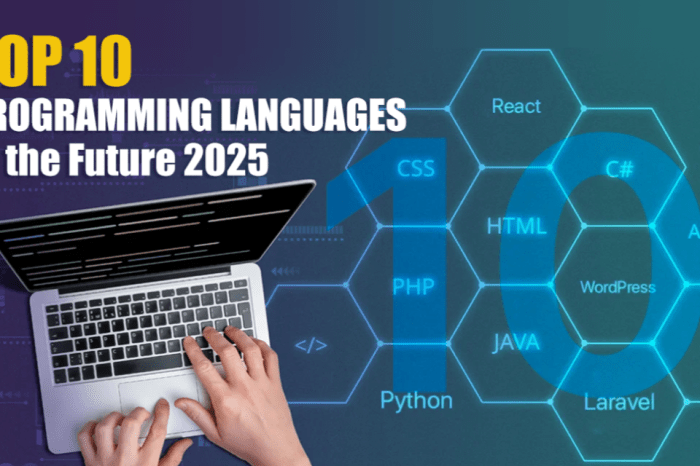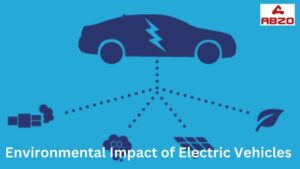Top Programming Jobs 2025
Top programming jobs 2025 are poised to be a dynamic mix of established and emerging roles, driven by factors like technological advancements and market demand. This article explores the future of programming, detailing the languages, skills, and emerging technologies shaping the landscape. It also delves into job market trends, salary expectations, and the crucial soft skills needed for success in this rapidly evolving field.
The evolving tech sector demands a deep understanding of current and future trends in programming. The report will investigate the top languages, technologies, and skills needed to thrive in 2025. It will provide insightful analyses of various aspects of this burgeoning field, including educational paths and global perspectives. The article concludes by offering detailed profiles of prominent programming roles, along with an overview of the expected salary ranges and career paths for skilled programmers.
Introduction to Top Programming Jobs in 2025: Top Programming Jobs 2025
The programming landscape in 2025 is projected to be significantly shaped by technological advancements and evolving industry needs. Demand for skilled programmers will remain strong, but the specific roles and required skill sets will be reshaped by emerging trends like artificial intelligence, the internet of things (IoT), and cloud computing. This shift necessitates a proactive understanding of the future job market and the skills required to excel.The demand for various programming roles in 2025 will be influenced by several factors, including the increasing reliance on software solutions across industries, the need for automation and data analysis, and the continued evolution of cloud-based technologies.
The ability to adapt to new technologies and develop solutions to complex problems will be paramount.
Key Programming Roles in High Demand
The programming field will continue to be dynamic, with new specializations and roles emerging. Key programming roles predicted to be in high demand in 2025 include those specializing in AI-driven development, cloud infrastructure management, and data science-oriented programming. These roles will often require a blend of technical skills and problem-solving abilities.
- AI-driven Development: Specialists in machine learning, deep learning, and natural language processing will be crucial for developing intelligent applications and systems. Companies across sectors, from healthcare to finance, will seek professionals to integrate AI into their products and processes.
- Cloud Infrastructure Management: As cloud computing becomes even more integral to business operations, experts in cloud platform management, security, and optimization will be highly sought after. Expertise in cloud providers like AWS, Azure, and Google Cloud will be vital.
- Data Science-Oriented Programming: The need to analyze and interpret large datasets will continue to grow, leading to a high demand for programmers with strong data analysis skills. Professionals who can effectively leverage programming languages like Python for data manipulation and visualization will be in high demand.
- Cybersecurity Programming: The increasing prevalence of cyber threats will drive a need for skilled cybersecurity programmers who can design and implement robust security systems and protocols. This involves protecting data and systems from malicious attacks.
Essential Skills and Experience
The skills required for programming jobs in 2025 will extend beyond coding proficiency. A strong foundation in critical thinking, problem-solving, and communication will be equally important. Adaptability and a willingness to learn new technologies will be vital for success.
- Proficiency in Multiple Programming Languages: While specific languages might rise and fall in popularity, a diverse skill set encompassing languages like Python, Java, JavaScript, and C++ will be highly beneficial.
- Data Analysis and Interpretation Skills: The ability to extract insights from data and translate them into actionable strategies will be a critical skill. This includes utilizing tools and techniques for data visualization.
- Problem-Solving and Critical Thinking: The capacity to identify problems, analyze their root causes, and develop innovative solutions will be paramount in tackling complex programming challenges.
- Cloud Computing Expertise: Familiarity with cloud platforms and technologies (e.g., AWS, Azure, Google Cloud) will become increasingly valuable as businesses continue to adopt cloud-based solutions.
Emerging Technologies and Trends
Emerging technologies will continue to influence the programming landscape. Understanding these trends and adapting to them will be crucial for staying competitive.
- Quantum Computing: While still in its nascent stages, quantum computing holds the potential to revolutionize various industries. Programmers with a foundational understanding of quantum algorithms will be needed.
- Internet of Things (IoT): The proliferation of interconnected devices will create opportunities for programmers specializing in IoT development, device integration, and data management.
- Web3 and Blockchain: These technologies are creating new possibilities in decentralized applications and digital assets, creating a need for programmers skilled in blockchain development and Web3 technologies.
Emerging Technologies and Roles
The tech landscape is constantly evolving, creating new opportunities for programmers. This section explores emerging technologies poised to shape the programming job market in 2025, highlighting the required skills and roles associated with these advancements. These emerging technologies often necessitate a blend of existing skills with new competencies.The rapid pace of technological advancement necessitates continuous learning and adaptation for programmers to remain competitive.
This adaptability is crucial for navigating the dynamic nature of the industry.
Artificial Intelligence (AI) and Machine Learning (ML)
AI and ML are transforming various industries, leading to a high demand for programmers proficient in these fields. This demand extends beyond basic programming to encompass the complexities of building and deploying AI/ML models.
- Data scientists and machine learning engineers require a deep understanding of algorithms, statistical modeling, and data manipulation techniques. They are responsible for developing and training AI models, ensuring their accuracy and efficiency.
- AI/ML developers create and implement AI systems, integrating them into existing applications and frameworks. This includes expertise in various programming languages and frameworks like TensorFlow and PyTorch.
- AI-assisted programmers leverage AI tools to automate tasks, improve code quality, and generate code snippets. This role involves a strong understanding of both AI and software development methodologies.
Web3 and Blockchain
The emergence of decentralized technologies like blockchain and the metaverse is creating new roles centered around decentralized applications (dApps) and blockchain development.
- Blockchain developers are responsible for building, deploying, and maintaining blockchain-based applications. This includes designing smart contracts, ensuring security, and optimizing performance.
- Web3 developers create decentralized applications and platforms, enabling users to interact with blockchain-based systems. Understanding of blockchain protocols, smart contracts, and decentralized storage is key.
- Decentralized finance (DeFi) engineers work on platforms that utilize blockchain technology for financial services, ensuring security and compliance in a decentralized environment.
Quantum Computing
The field of quantum computing is poised for significant growth, requiring specialized programmers.
- Quantum software engineers develop algorithms and applications for quantum computers. A strong foundation in quantum mechanics and mathematics is crucial.
- Quantum hardware engineers focus on designing and building the physical components of quantum computers. This requires expertise in materials science and engineering.
Augmented and Virtual Reality (AR/VR)
The immersive technologies of AR/VR are expanding into diverse applications, demanding skilled programmers.
- AR/VR application developers design and build interactive experiences within AR/VR environments. This involves proficiency in programming languages used for creating immersive applications, and an understanding of 3D modeling and graphics.
- AR/VR game developers create engaging games within augmented or virtual environments. They require expertise in game engines and 3D modeling, coupled with a creative understanding of interactive design.
Emerging Roles Table, Top programming jobs 2025
| Emerging Technology | Related Roles | Required Skillsets |
|---|---|---|
| Artificial Intelligence/Machine Learning | Data Scientists, Machine Learning Engineers, AI/ML Developers, AI-assisted Programmers | Programming Languages (Python, R), Machine Learning Algorithms, Data Analysis, Statistical Modeling |
| Web3/Blockchain | Blockchain Developers, Web3 Developers, DeFi Engineers | Blockchain Technologies, Smart Contracts, Cryptography, Decentralized Systems |
| Quantum Computing | Quantum Software Engineers, Quantum Hardware Engineers | Quantum Mechanics, Quantum Algorithms, Programming Languages (Q#), Quantum Computing Frameworks |
| AR/VR | AR/VR Application Developers, AR/VR Game Developers | Programming Languages (C++, Unity), 3D Modeling, Graphics, Game Engines |
Essential Soft Skills for Programming Professionals

Source: spiritmeans.com
Beyond technical proficiency, success in the 2025 programming landscape hinges on a robust set of soft skills. These skills, often overlooked, are critical for effective collaboration, problem-solving, and navigating the ever-evolving tech industry. Strong communication, adaptability, and critical thinking, alongside teamwork and time management, are paramount to thriving in today’s competitive environment.The ability to effectively articulate technical concepts, to adapt to evolving technologies, and to think critically about complex problems are increasingly valued.
These soft skills are not simply “nice-to-haves”; they are integral components of a well-rounded programming professional. A programmer who can effectively communicate ideas, collaborate with others, and adapt to changing demands will undoubtedly be a valuable asset in any team.
Crucial Communication Skills
Effective communication is essential for programmers, enabling them to clearly convey complex ideas, collaborate seamlessly with colleagues, and receive constructive feedback. Clear and concise communication, both written and verbal, is vital for conveying technical information to diverse audiences, including clients, team members, and even end-users. The ability to actively listen and understand different perspectives is also crucial for fostering productive discussions and resolving conflicts.
- Active Listening: Paying close attention to understand the speaker’s message, both verbally and nonverbally, is essential. This includes asking clarifying questions and demonstrating empathy to grasp the full context of the conversation. Practicing active listening involves maintaining eye contact, summarizing key points, and asking clarifying questions to ensure a complete understanding.
- Clear and Concise Written Communication: Technical documentation, code comments, and project proposals all demand clear and concise written communication. Using precise language and avoiding jargon, especially when communicating with non-technical stakeholders, is crucial for effective collaboration and successful project delivery.
- Verbal Communication: In team settings, presentations, and meetings, the ability to articulate technical concepts in a way that is understandable to non-specialists is highly valuable. This involves adapting communication styles based on the audience and the context of the discussion. Effective verbal communication also includes the ability to ask insightful questions and provide feedback constructively.
Adaptability and Problem-Solving Prowess
The technology landscape is constantly evolving, necessitating adaptability in programmers. A flexible mindset and the ability to quickly grasp new technologies and approaches are crucial for staying relevant. Furthermore, programmers must possess strong analytical skills and a structured approach to problem-solving, particularly when encountering novel challenges.
- Adaptability: Learning new programming languages, frameworks, and tools quickly and efficiently is crucial for staying current in the field. This includes a willingness to embrace change and a proactive approach to learning new technologies. This adaptability is reflected in the ability to adapt to different project methodologies and team structures.
- Critical Thinking: Analyzing complex problems, identifying underlying causes, and proposing effective solutions are essential aspects of critical thinking. It involves evaluating information objectively, recognizing potential biases, and developing logical arguments. This skill is vital for identifying and addressing potential bugs or errors in code.
- Problem-Solving: Approaching technical issues with a structured and methodical approach is key to effective problem-solving. This involves identifying the problem, exploring potential solutions, implementing solutions, and evaluating their effectiveness. Thorough testing and debugging are vital components of this process.
Collaboration and Time Management
In today’s collaborative development environments, teamwork and effective time management are critical. Programmers need to work effectively with diverse teams, contribute to shared goals, and meet project deadlines. These skills are not only about individual performance, but about the collective success of the project.
- Teamwork: The ability to work collaboratively with others, share knowledge, and contribute to the success of the project is essential for programmers. This includes active participation in team discussions, constructive feedback, and effective delegation.
- Time Management: Prioritizing tasks, managing time effectively, and meeting deadlines are crucial for success in programming. This includes planning tasks, breaking them into smaller, manageable steps, and tracking progress towards objectives.
Essential Soft Skills for Programming Success
| Soft Skill | Description | Development Strategy |
|---|---|---|
| Active Listening | Paying close attention to understand the speaker’s message, both verbally and nonverbally. | Practice active listening exercises; seek feedback on communication style. |
| Clear & Concise Communication | Expressing ideas precisely and avoiding jargon when communicating with technical and non-technical audiences. | Practice writing clear code comments; participate in presentations and discussions. |
| Adaptability | Embracing change and readily learning new technologies and approaches. | Explore new programming languages and frameworks; actively seek opportunities to learn. |
| Critical Thinking | Analyzing problems, identifying underlying causes, and developing effective solutions. | Engage in critical analysis of code and design; solve coding puzzles and challenges. |
| Problem-Solving | Approaching technical issues methodically and implementing effective solutions. | Work through coding challenges; identify and address bugs in existing code. |
| Teamwork | Collaborating effectively with others, sharing knowledge, and contributing to project success. | Participate in group projects; provide constructive feedback to colleagues. |
| Time Management | Prioritizing tasks, managing time efficiently, and meeting deadlines. | Use project management tools; track progress towards goals; break down large tasks into smaller ones. |
Job Market Trends and Predictions
The tech sector is experiencing rapid evolution, driven by advancements in artificial intelligence (AI) and automation. This dynamic environment presents both opportunities and challenges for programmers. Understanding the emerging trends is crucial for navigating the job market successfully.The overall job market in the tech sector is projected to remain robust in 2025. Demand for skilled programmers will continue to be high, particularly in areas like cloud computing, data science, and cybersecurity.
However, the specific roles and skills required will evolve significantly.
Overall Tech Sector Job Market Trends
The tech sector is expected to witness a significant shift towards specialized roles and hybrid skillsets. The need for programmers with strong problem-solving abilities, combined with expertise in emerging technologies, will be paramount. Companies will increasingly prioritize candidates who demonstrate adaptability and a willingness to learn new tools and techniques.
Impact of Automation and AI on Programming Jobs
Automation and AI are poised to significantly alter the programming landscape. While some repetitive coding tasks may be automated, the need for programmers with strong analytical skills and the ability to design and implement AI systems will rise. The demand for professionals who can oversee and manage these automated processes will also grow. This means programmers must be prepared to work alongside AI tools and adapt their skillsets to include AI integration.
Salary Expectations for Top Programming Roles in 2025
Salary expectations for top programming roles in 2025 will likely reflect the increasing demand for specialized skills and the evolving technological landscape. The current high demand for professionals in AI and machine learning, combined with the growing complexity of software development projects, points to potential salary increases.
Salary Ranges for Different Programming Roles (2025 Estimate)
| Programming Role | Estimated Salary Range (USD) |
|---|---|
| AI/Machine Learning Engineer | $120,000 – $180,000 |
| Cloud Architect | $110,000 – $170,000 |
| Cybersecurity Analyst | $90,000 – $150,000 |
| Full-Stack Developer (specialized in AI) | $95,000 – $160,000 |
| Data Scientist | $105,000 – $175,000 |
Note: These salary ranges are estimates and may vary based on location, experience, and specific skillset. The current high demand for skilled professionals in the fields listed above, and the growing complexity of projects, suggest an upward trend in salaries.
Education and Training Paths
Preparing for the programming landscape of 2025 requires a proactive approach to skill development. Individuals aiming for programming roles must embrace continuous learning and adapt to the evolving demands of the field. This involves staying updated on emerging technologies, refining core programming skills, and cultivating essential soft skills.Successfully navigating the job market in 2025 necessitates a strategic approach to education and training.
A robust understanding of programming fundamentals, coupled with practical experience, is crucial for securing competitive positions.
Structured Learning Paths
Various educational avenues cater to different learning styles and career goals. Formal degrees provide a comprehensive foundation in programming principles, while online courses and bootcamps offer targeted skill development. Each path has its own advantages and disadvantages, impacting the individual’s pace of learning and career trajectory.
Online Courses
Online platforms provide a cost-effective and flexible way to acquire programming knowledge. Courses often focus on specific languages, frameworks, or emerging technologies, allowing learners to target their skills. These courses typically offer self-paced learning and often come with certificates upon completion, adding value to resumes. Platforms like Coursera, edX, Udemy, and Udacity offer extensive programming courses, encompassing diverse languages and specializations.
The flexibility of online learning allows individuals to balance their studies with other commitments.
Bootcamps
Bootcamps provide intensive, focused training in programming. These programs typically offer hands-on experience and project-based learning, allowing students to apply their knowledge immediately. Bootcamps often cover a specific area of programming, such as web development or data science, equipping graduates with in-demand skills. The intensive nature of bootcamps necessitates dedication, but the accelerated learning pace can be beneficial for rapid skill acquisition.
Degrees
Formal degrees in computer science or related fields provide a comprehensive understanding of programming principles. These programs cover theoretical concepts, algorithms, data structures, and software engineering methodologies. A degree often leads to more senior roles and opens doors to specialized research and development opportunities. However, the commitment and time required for a degree are significant.
Resources and Learning Platforms
Staying updated with the latest trends in programming necessitates continuous learning. Here are some valuable resources and learning platforms for prospective programmers:
- FreeCodeCamp: Offers a comprehensive curriculum covering front-end, back-end, and full-stack development. It emphasizes practical experience through projects.
- Codecademy: Provides interactive lessons and exercises for learning various programming languages, such as Python, JavaScript, and Ruby. The platform offers a user-friendly interface for learning.
- Khan Academy: Offers introductory courses in computer programming, suitable for beginners looking to build a foundation in fundamental concepts.
- GitHub: A platform for hosting and collaborating on code repositories. Exploring open-source projects and contributing to them provides invaluable experience for aspiring programmers.
- Stack Overflow: A vast online community of programmers where users can ask questions and find solutions to programming challenges. The platform is a valuable resource for troubleshooting and learning from others.
Global Perspectives on Programming Jobs

Source: ziprecruiter.com
The demand for skilled programmers is not uniform across the globe. Different regions exhibit varying levels of need, influenced by factors like economic development, technological adoption, and cultural preferences. Understanding these regional disparities is crucial for aspiring programmers seeking opportunities and for businesses anticipating talent availability.
Regional Variations in Programming Job Demand
The global programming job market is characterized by significant regional differences. Factors like economic development, technological adoption rates, and local industry trends play a pivotal role in shaping demand. Developed economies, typically, show higher demand for programmers in various specializations, including AI, data science, and cloud computing, as businesses actively integrate these technologies into their operations. Conversely, developing nations might see a greater demand for programmers with expertise in mobile app development or web design, driven by the need for digital infrastructure and accessibility.
Geographic Areas with Abundant Programming Jobs
Certain geographic areas are expected to experience robust growth in programming jobs. North America, particularly the United States and Canada, consistently ranks high due to its strong technological ecosystem and substantial investment in innovation. Similarly, regions in Europe, like the UK and Germany, are experiencing significant demand for programmers specializing in emerging technologies. Asia, with its booming economies and expanding tech sectors, particularly in India and China, also promises numerous opportunities for skilled programmers.
Impact of Cultural Factors on the Programming Job Market
Cultural factors can influence the programming job market in subtle but significant ways. For instance, different cultural norms regarding work-life balance, collaboration styles, and communication preferences can affect team dynamics and project outcomes. Furthermore, the level of digital literacy and access to technology within a given culture can influence the demand for certain types of programming roles. For example, a culture with a strong emphasis on e-commerce may see higher demand for programmers specializing in e-commerce platforms.
Comparison of Programming Job Demand Across Regions
| Region | Programming Job Demand (2025 Estimate) | Key Driving Factors |
|---|---|---|
| North America (US, Canada) | High | Strong tech ecosystem, substantial investment in innovation, and diverse industries adopting technology |
| Western Europe (UK, Germany, France) | High | Established tech sectors, emphasis on digital transformation, and robust regulatory frameworks |
| Asia (India, China, Japan) | Very High | Rapid economic growth, expanding tech industries, and large pool of skilled talent |
| South America | Moderate | Emerging tech sectors, increasing demand for digital services, but varying levels of access to education and resources |
| Africa | Moderate to High | Rapidly growing tech sectors in some countries, increased focus on mobile-first solutions, and potential for skilled labor development |
Note: Estimates are based on projected economic growth, technological advancements, and market trends.
Specific Role Descriptions
The programming landscape is constantly evolving, leading to a diverse array of specialized roles. Understanding the specific responsibilities, skills, and tasks of these roles is crucial for aspiring programmers and career advancement. This section delves into several top programming jobs, highlighting their unique challenges and rewards.
Software Engineer
Software engineers are the backbone of the tech industry. They design, develop, and maintain software applications, from mobile apps to complex enterprise systems. Their work often involves collaborating with various teams, from designers to product managers, ensuring the final product aligns with business needs.
“Software engineers are problem-solvers, constantly adapting to new technologies and requirements.”
- Responsibilities: Designing, developing, testing, and maintaining software applications; collaborating with cross-functional teams; staying updated on industry trends and technologies; ensuring code quality and maintainability.
- Required Skills: Proficiency in programming languages (e.g., Java, Python, JavaScript); strong problem-solving abilities; understanding of software development methodologies (e.g., Agile); excellent communication skills.
- Typical Tasks: Writing code, debugging, testing, documenting code, participating in code reviews, collaborating with designers and product managers, and staying updated on the latest industry trends.
- Challenges: Meeting tight deadlines, adapting to rapidly changing technologies, and maintaining code quality in large-scale projects.
- Rewards: Contributing to innovative projects, seeing the impact of their work on users, and continuous learning in a dynamic field.
Data Scientist
Data scientists are in high demand due to the increasing importance of data-driven decision-making. They extract insights from large datasets, build predictive models, and develop data visualizations to inform business strategies.
“Data scientists bridge the gap between raw data and actionable insights.”
- Responsibilities: Collecting, cleaning, and analyzing data; developing predictive models; creating data visualizations; communicating insights to stakeholders; and identifying patterns and trends in data.
- Required Skills: Proficiency in statistical modeling; data mining techniques; programming languages (e.g., Python, R); and data visualization tools.
- Typical Tasks: Data cleaning, feature engineering, model building, model evaluation, and presenting findings to stakeholders.
- Challenges: Dealing with massive datasets, ensuring data accuracy, and communicating complex findings to non-technical audiences.
- Rewards: Solving complex problems, uncovering valuable insights, and contributing to data-driven decision-making.
Machine Learning Engineer
Machine learning engineers specialize in developing and deploying machine learning models. Their work involves building and training algorithms, integrating them into existing systems, and ensuring model performance.
“Machine learning engineers are at the forefront of developing intelligent systems.”
- Responsibilities: Building, training, and deploying machine learning models; ensuring model performance and accuracy; integrating models into existing software systems; and collaborating with data scientists and other engineers.
- Required Skills: Proficiency in programming languages (e.g., Python); knowledge of machine learning algorithms; experience with cloud platforms (e.g., AWS, Azure); and understanding of data structures and algorithms.
- Typical Tasks: Model selection, feature engineering, training, testing, and deployment; monitoring model performance; and optimizing model efficiency.
- Challenges: Choosing the right algorithms, managing large datasets, and ensuring model interpretability and robustness.
- Rewards: Developing innovative solutions, contributing to cutting-edge technologies, and seeing the impact of their work on various applications.
Cybersecurity Analyst
Cybersecurity analysts are critical in protecting digital assets from threats. They identify vulnerabilities, respond to security incidents, and implement security measures to prevent future attacks.
“Cybersecurity analysts play a vital role in safeguarding sensitive information.”
- Responsibilities: Identifying and assessing security risks; responding to security incidents; implementing security measures; monitoring systems for suspicious activity; and staying updated on the latest cybersecurity threats.
- Required Skills: Knowledge of security protocols and best practices; understanding of network security; familiarity with security tools and technologies; and strong analytical and problem-solving skills.
- Typical Tasks: Vulnerability scanning, penetration testing, incident response, security awareness training, and implementing security policies.
- Challenges: Staying ahead of constantly evolving threats, adapting to new security technologies, and handling sensitive data.
- Rewards: Protecting sensitive information, contributing to a secure digital environment, and making a tangible difference in mitigating potential risks.
Final Thoughts
In conclusion, the programming job market in 2025 presents exciting opportunities for skilled professionals. The rise of new technologies and the ever-changing demands of the industry require continuous learning and adaptability. By understanding the key trends, acquiring the necessary skills, and embracing a global perspective, individuals can position themselves for success in this dynamic field. The future of programming is bright, and the key is to proactively adapt to the shifting landscape.
The report’s analysis will guide professionals in this direction.













Post Comment